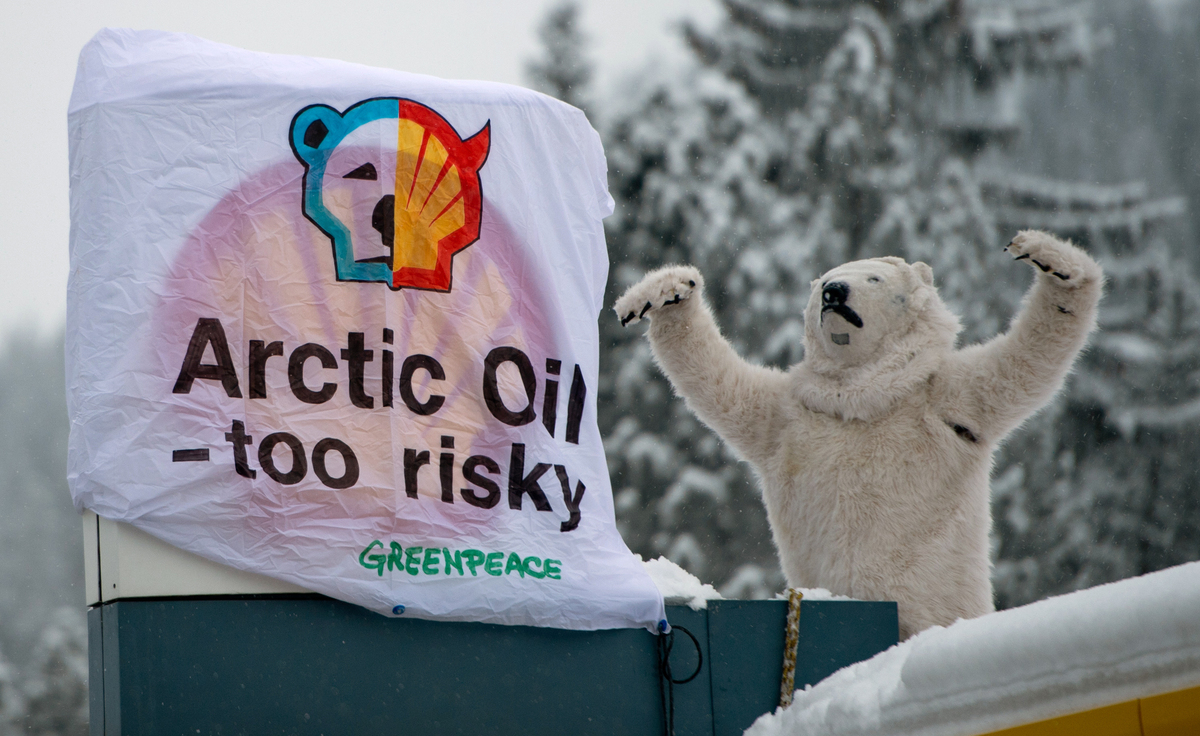
Arctic “should remain off-limits to drilling”
 For a long time now many environmental organisations and front-line communities have warned about the dangers of drilling in the Arctic.
For a long time now many environmental organisations and front-line communities have warned about the dangers of drilling in the Arctic.
Even before the Exxon Valdez scarred Alaska in 1989 people warned that drilling in the high north can have terrible consequences.
And there was one major lesson from the Exxon Valdez: oil is much harder to break down, and hence clean up, in the cold waters of the North. It also showed that the industry was woefully unprepared for a spill of that kind.
When the Deepwater Horizon oil rig exploded in the Gulf of Mexico it spawned one of the worst environmental disasters in US history. Once again the catastrophe showed the clear need for a massive, well-coordinated response when disaster strikes.
If BP had spilled that amount of oil in the Arctic, the consequences would have been utterly catastrophic. They would still be cleaning up their mess, now.
Although Deepwater may have delayed some drilling off America’s coasts this was only a temporary hindrance. After spending over five years and $4 billion on the process, Shell is now on the cusp of receiving the green light to begin exploratory drilling in Alaska’s Beaufort and Chukchi Seas next summer.
The oil giant is at pains to point out that its wells will not be in deep water and that it has adequate protection in place. But these arguments are destroyed in a new report by the Centre for American Progress that warns against the dangers of Arctic drilling.
The report, entitled, Putting a Freeze on Arctic Ocean Drilling America’s Inability to Respond to an Oil Spill in the Arctic argues that the oil industry is not prepared to prevent disaster to this remote and fragile region.
It will come as no surprise to many that the report finds the preparations by the oil and gas industry, federal agencies, and Congress to be completely inadequate, overstretched, and untested.
The Centre, like many people before it, argues that the fundamental characteristics of the vastly unexplored and uninhabited Arctic coastline may increase the likelihood of a spill and will certainly hamper emergency response capability.
And they are not alone is sounding the alarm bells. At the end of last month, nearly 600 scientists from around the world signed an open letter urging President Obama and Interior Secretary Ken Salazar to base Arctic drilling decisions on science, not politics.
“Already stressed by rapidly melting summer ice, the whales, walrus, ice seals, polar bears, and other wildlife in these waters are especially vulnerable to oil spills and industrial activity,” the Pew Environment Group and the Ocean Conservancy explained in a full-page ad that ran the New York Times.
As the National Oceanic and Atmospheric Administration chief Jane Lubchenco said at the time “We don’t fully understand what the consequences of that are going to be.”
As the report details, the resources and existing infrastructure that facilitated a grand-scale response to the BP disaster differ immensely from what could be brought to bear in a similar situation off Alaska’s North Slope. “Our Arctic response capabilities pale by comparison”, argues the report.
The report highlights that there are no U.S. Coast Guard stations north of the Arctic Circle, and we currently operate just one functional icebreaking vessel. Alaska’s tiny ports and airports are incapable of supporting an extensive and sustained airlift effort. The region even lacks such basics as paved roads and railroads.
It argues: “This dearth of infrastructure would severely hamper the ability to transport the supplies and personnel required for any large-scale emergency response effort. Furthermore, the extreme and unpredictable weather conditions complicate transportation, preparedness, and cleanup of spilled oil to an even greater degree.”
The report concludes that “Drilling for oil in this fragile region … should not be pursued without adequate safeguards in place. If we’ve learned anything from the Deepwater Horizon tragedy, it’s that the importance of preparedness cannot be overstated.”
The Centre recommends that “until the oil and gas industry and its federal partners can demonstrate with certainty that they can identify and respond to a true worst-case scenario incident, the Arctic should remain off-limits to exploration and drilling.”
